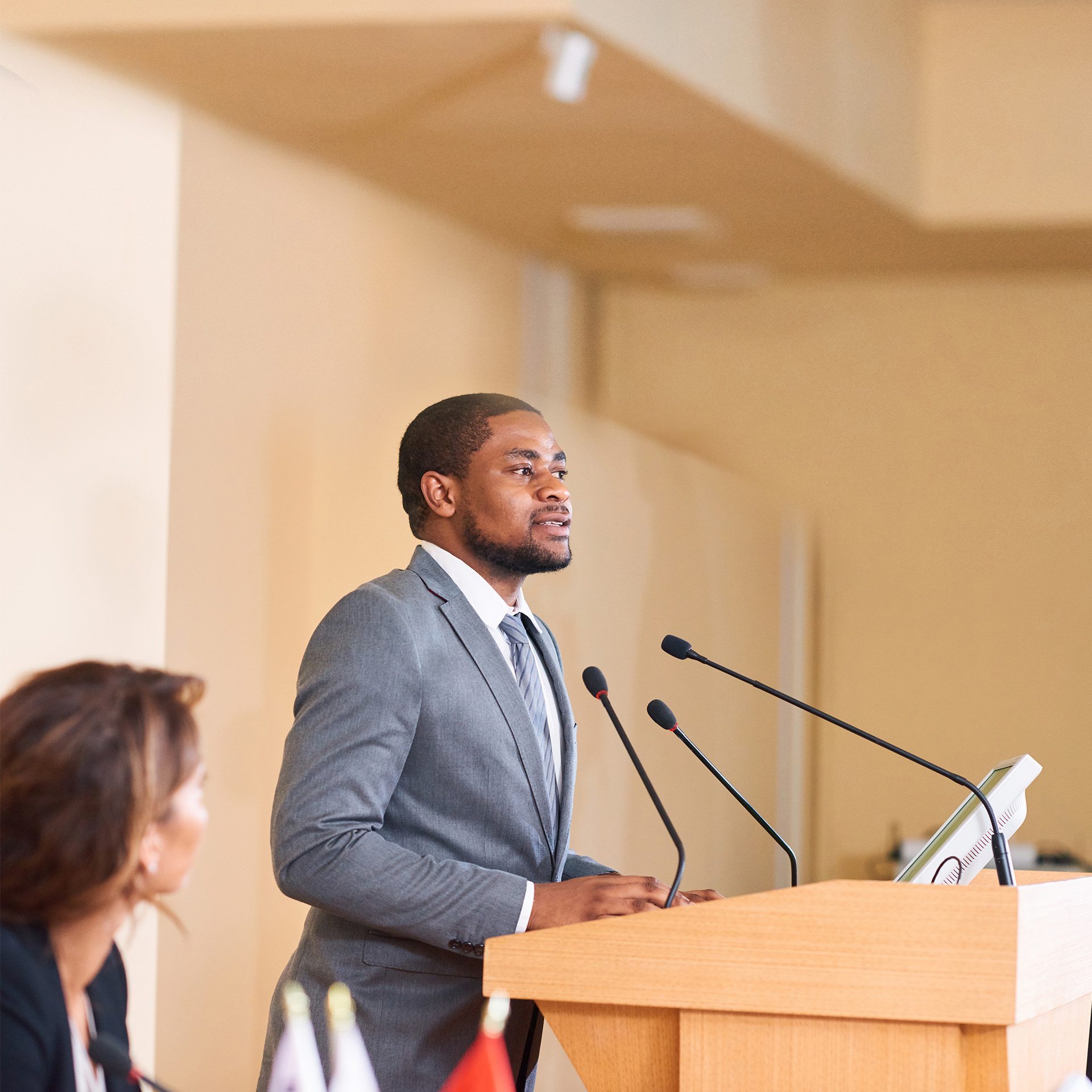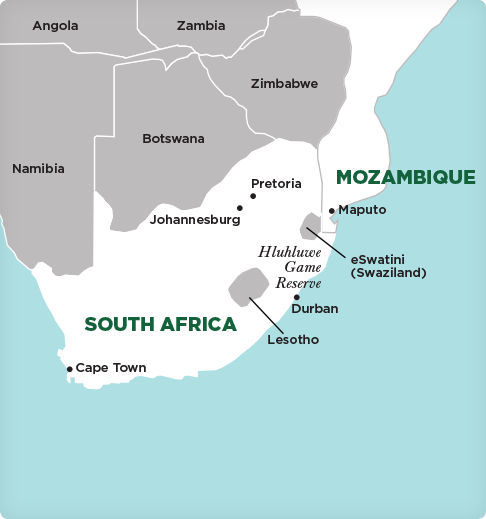Credits
8
Prerequisites
None
Courses taught in
English
Dates
Jun 1 – Jul 23
Program Countries
South Africa
Program Base
Durban
Visa
Varies
Critical Global Issue of Study
Geopolitics & Power

Prepare for a career in diplomacy, conflict resolution, or global affairs as you gain professional, intercultural experience interning at a civil society NGO in South Africa.
8
None
English
Jun 1 – Jul 23
South Africa
Durban
Varies
Geopolitics & Power
This unique internship program focuses on non-western perspectives in the fields of international relations, South-South relations, and the possibilities and limits of multilateral diplomacy and cooperation. Through internship engagements with host nongovernmental organizations, visits with ambassadors, lectures and reflection seminars, and excursions, you will learn about South Africa’s successes and continued challenges as it transitions from apartheid to democracy.
The core component of this program is a five-week internship with one of SIT’s partner civil society NGOs. These include the Africa Centre for the Constructive Resolution of Disputes (ACCORD), the Institute for Global Dialogue (IGD), Institute for Security Studies (ISS), and Centre for Conflict Resolution (CCR). Internship roles and responsibilities depend on student interests and specific skills, and may include proposal writing, media and content development, administrative tasks, and workshop and conference support.
On excursions to Johannesburg and Maputo, Mozambique, you will learn about the role of front-line states (a coalition of African nations that supported the anti-apartheid movement) in South Africa’s liberation struggle, and the challenges posed by contemporary global trends such as mass migration. During the program’s thematic seminar, you will survey the architecture of the South African political landscape constructed around the objectives of the African Union (AU).
None.


Your base for the program is Durban, among the most cosmopolitan of South Africa’s cities with a rich fusion of African, western, and South Asian influences. Here you will learn about key historical figures like Albert Luthuli, the first African to be awarded the Nobel Prize for Peace in 1960, and Mahatma Gandhi, whose political consciousness was shaped in a community near Durban. On several fascinating excursions you will visit residents of an informal shack-dwellers settlement; an African traders’ market; an ecotourism project; a center for jazz and popular music; and local schools.
Visit the Apartheid Museum and the Nelson Mandela National Museum. Learn how South African students joined the struggle against apartheid in Soweto. You will also visit the Pan African Parliament, where African parliamentarians meet and deliberate on the full participation of African peoples in the economic development and integration of the continent.
Study the shared histories of South Africa and Mozambique and the key collaborative role played by Mozambique’s ruling party, Frelimo, in the liberation struggle against apartheid following Mozambique’s own hard-fought independence from Portugal in the 1970s. Learn about the African National Congress’s apartheid-era operational bases in Mozambique, and witness the physical effects of the South African apartheid government’s attacks near the capital, Maputo. You will visit and learn from key Mozambican civil society organizations working in the area of conflict resolution and international relations. This excursion will enhance your understanding of the bilateral relations of South Africa and Mozambique, which are grounded in strong historical and political bonds dating back to the liberation struggle.
During the evaluation period, you will engage with key diplomats in South Africa’s legislative capital and visit some of the country’s great museums. You will also visit Robben Island, site of the prison that held late South African President Nelson Mandela for 18 years and many other political activists. It is also a UNESCO World Heritage Site. Trek or ride up the scenic cliffs of Table Mountain, part of the coastal Table Mountain National Park, and enjoy some time to explore the city on your own.
Please note that SIT will make every effort to maintain its programs as described. To respond to emergent situations, however, SIT may have to change or cancel programs.
Upon successful completion of the program, students will be able to:
The following syllabi are representative of this program. Because courses develop and change over time to take advantage of dynamic learning opportunities, actual course content will vary from term to term.
The syllabi can be useful for students, faculty, and study abroad offices in assessing credit transfer. Read more about credit transfer.
Internship & Seminar
(ITRN-3005 / 5 credits)
In this five-week internship, students get the opportunity to intern with local community organizations, research centers, government agencies, or international NGOs. Students will investigate non-western perspectives on international relations, South-South diplomacy, and the politics of the African Union.
The aim of an internship is to enable students to gain valuable experience and enhance their skills in a career field/professional environment related to diplomacy, politics, and international relations. SIT will facilitate an internship placement for students and oversee internship placements in line with SIT academic policies and student health and security guidelines.
Students will participate in regular reflection and assessment meetings with the academic director or internship coordinator to review learning, progress of the internship, and to draw out broader issues related to program themes, positionality, culture and ethics in the context of the internship.
Students will be informed of the types of internships available and the placement process early in the program.
Contextual Studies in Diplomacy and International Relations
(INTS-3000 / 3 credits)
This interdisciplinary seminar begins with an introduction to South African politics and goes on to cover key components of the continental and international system. These include: the state, continental organizations like the African Union, international organizations, and non-state actors. Students are introduced to the concept of foreign policy and the history and functions of diplomacy with special attention on the goals and objectives of South Africa’s foreign policy agenda.


Possible career or academic paths for alumni of this program include:
Diplomat
Researcher at an NGO or think tank
Negotiator/ mediator in civil society sector
Intern at African Union in Addis Ababa
Fulbright scholar


SIT Study Abroad is committed to ensuring that international education is within reach for all students. We believe in the transformative power of immersive, intercultural experiences and are dedicated to supporting students in their educational journey.
See All Costs
A critical step in preparing for your study abroad program is planning how you will maintain your health and wellbeing. Please review the following information carefully and contact [email protected] with any questions or concerns.
Learn More
Depending on your passport of origin, you may need a visa for this program. Please contact your admissions officer for more information.